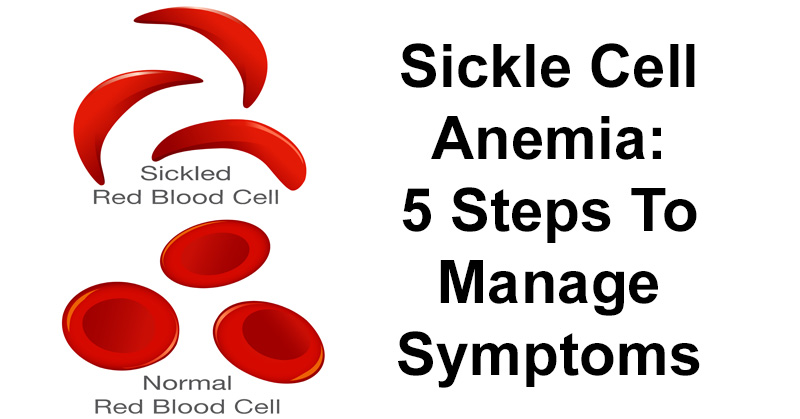What is sickle cell anemia? Unlike scurvy or rickets, which result from vitamin deficiencies, this is an inherited disease.
This disease develops when children inherit defective sickle beta-globin genes from both parents, causing them to produce abnormal hemoglobin. The cells are abnormally shaped, which makes it difficult for them to travel through blood vessels and so can block blood flow. Sickle-shaped red blood cells are also more fragile, causing them to break or become lodged. These fragile red blood cells can’t carry oxygen. Hence, the name anemia
Sickle cell anemia symptoms include weakness, shortness of breath, and chest pains. (1) While sickle cell anemia causes cannot be prevented, natural sickle cell anemia treatment can help manage symptoms.
Sickle Cell Anemia Symptoms
- Fatigue and weakness
- Symptoms of a fever
- Swelling and fluid retention
- Shortness of breath and chest pains
- Joint and bone pains
- Abdominal pains
- Vision problems
- Nausea, vomiting and digestive problems
- Poor circulation that causes sores
- Symptoms of jaundice
- Enlarged spleen
- Higher risk for infections and illnesses
- Higher risk for blood clots, liver damage, kidney damage, lung damage and gallstones
- Sexual dysfunction
- Higher risk for stroke, seizures, enlargement of the heart and heart murmurs

Sickle Cell Anemia Treatment
1. Diet
While diet cannot change sickle cell anemia causes, it can help patients manage painful symptoms. Patients with sickle cell anemia symptoms may have a harder time digesting protein and micronutrients, leading to weight loss and malnutrition. (2) As part of your sickle cell anemia treatment:
- Be sure to eat enough calories to prevent unwanted weight loss
- Eat a nutrient-dense diet that includes plenty of fresh produce
- Eat enough protein, foods high in iron, and healthy fats including coconut oil, olive oil, avocado, nuts and seeds
- Consume foods high in folate to help with the production of red blood cells, including chickpeas, pinto beans, lentils, spinach, beets and broccoli
- Drink enough water each day to prevent dehydration and electrolyte imbalance
- Avoid processed and packaged foods

2. Supplements
Beyond nutrition, certain supplements can help in sickle cell anemia treatment to prevent deficiencies and protect bones. Using supplements to bolster blood circulation also improves outcomes by helping the blood transport oxygen to the cells. (3) To help reduce sickle cell anemia symptoms, take:
- Vitamin D
- Calcium
- Folate/Folic acid (4)
- Omega 3 fatty acids
- Vitamin B6 and B12
- Multivitamins including copper, zinc and magnesium
3. Reduce Stress and Get Enough Sleep
While many people take exercise for granted, someone with sickle cell disease should be more careful. Sure, exercise is possible in most cases of sickle cell anemia, depending on a person’s symptoms. However, the exercise may need to be gentle or moderate. And rest is important, too. Aim for 7-9 hours of sleep per night and participate in relaxing activities, such as meditation, yoga, acupuncture, massage, and breathing exercises.

4. Prevent Overexertion
Of course, sickle cell disease causes the amount of oxygen in the blood to drop to very low levels. So it’s important to avoid stressful situations or to do any strenuous workout. In fact, anything you can do to prevent overexertion. Therefore, avoid vigorous exercise or spending time at high altitudes, especially when recovering from an illness. (5)
5. Essential Oils To Reduce Pain
Symptoms of sickle cell anemia can include joint stiffness and muscle weakness, as well as pain in your bones, chest, and abdomen. To help manage the pain, use a warm compress on painful areas for about 15 minutes, two to three times a day. Taking warm baths, stretching, and massage therapy can also help reduce symptoms. Essential oils that can help manage symptoms include peppermint oil to reduce sore muscles, frankincense oil to reduce inflammation, lavender oil to help manage stress, and citrus oils like bergamot, orange or lemon to help decrease fatigue. (6)


